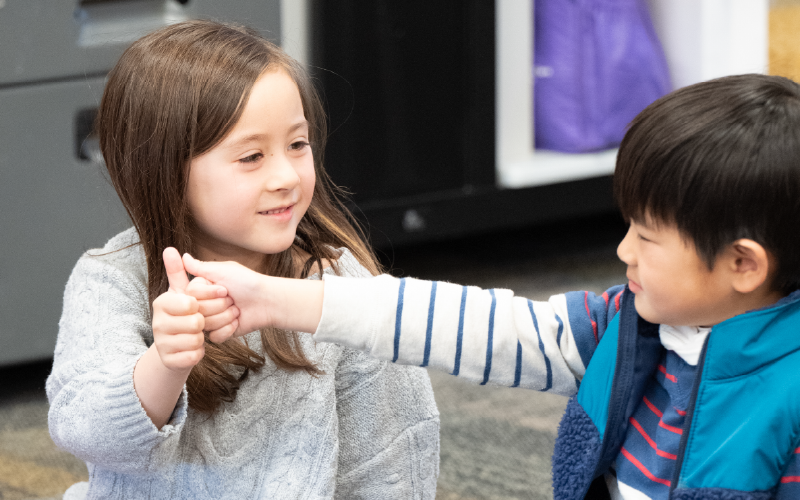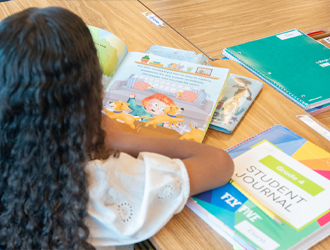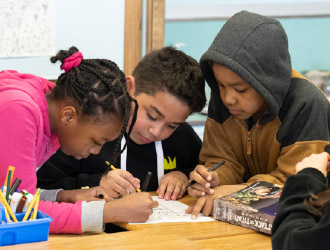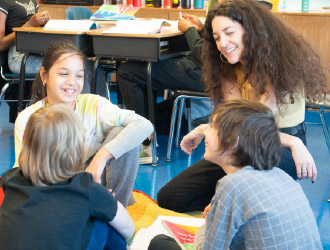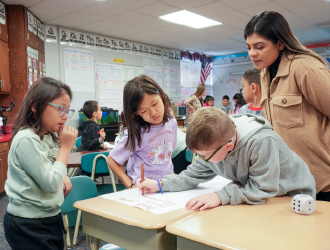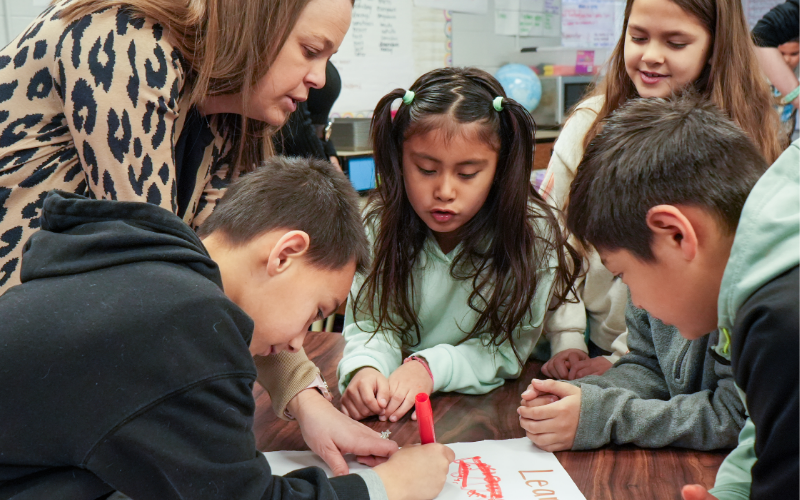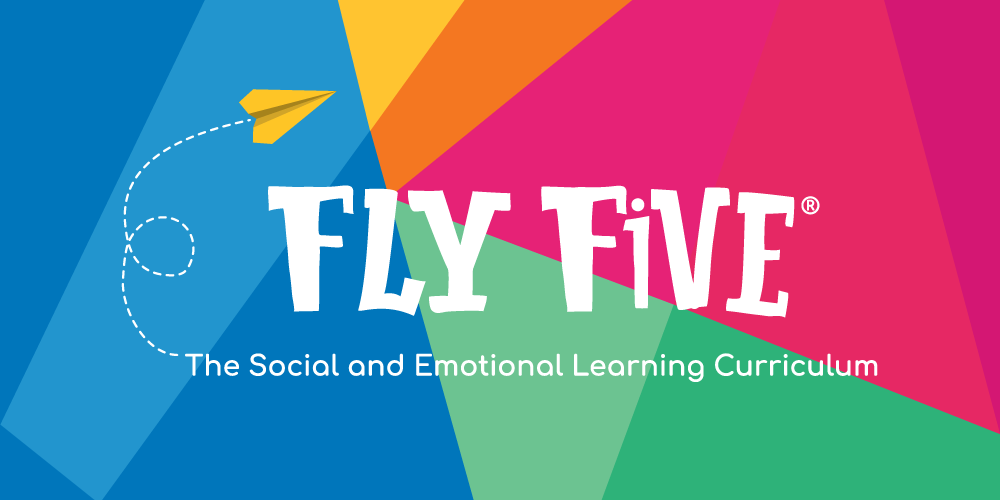Five Ways Your School Can Celebrate National Gratitude Month
Gratitude has the power to strengthen relationships, build empathy, and create a school culture where everyone feels seen and valued. November offers the perfect opportunity to pause and appreciate the many people who help your school community thrive, including students, families, teachers, and other staff. To celebrate National Gratitude Month, try introducing simple, schoolwide practices that invite everyone to foster kindness, connection, and a strong sense of community.
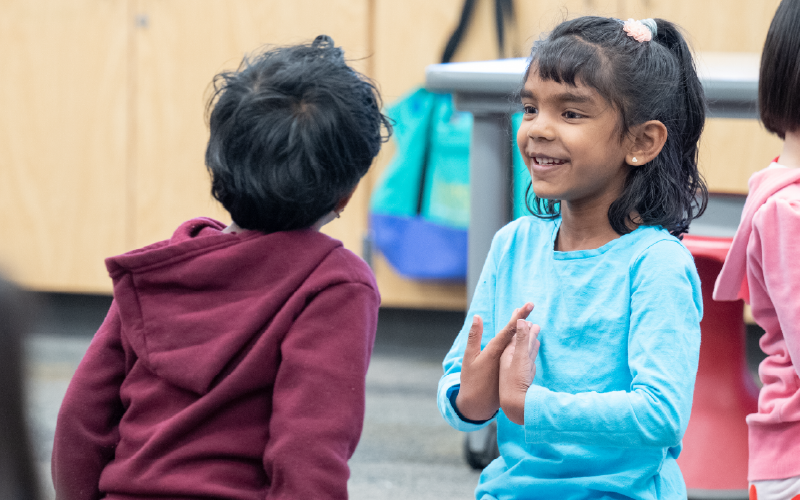
1. Start (and End) Each Day with Gratitude
You can use Morning Meeting or Responsive Advisory Meeting at the beginning of the day to reflect on what students and staff appreciate. A simple prompt like “Share one thing that made you smile this week” helps start the day with positivity and a sense of connection. A gratitude-focused morning message or advisory announcement can also help set a tone of appreciation that lasts all day long.
Similarly, closing circle offers a meaningful way to end the day with gratitude and reflection. Taking a few moments to appreciate the positive experiences of the day helps strengthen relationships, reinforces a lasting sense of community, and creates momentum that can be carried into the next day.
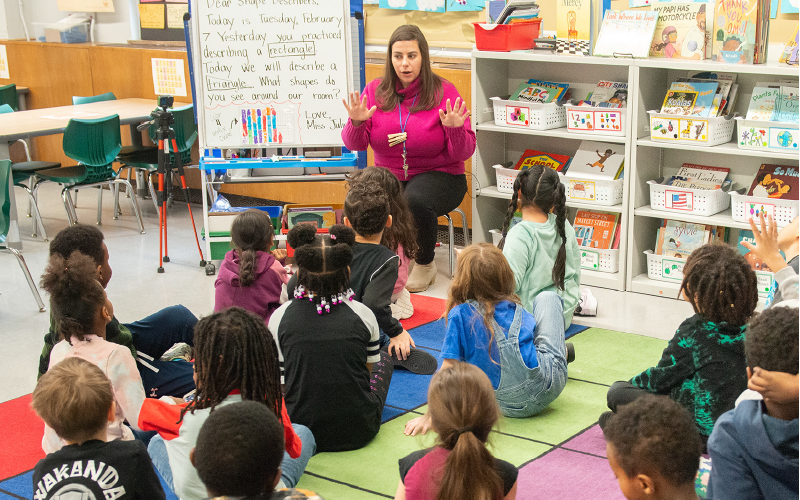
2. Create a Schoolwide Gratitude Wall
Try turning a hallway or classroom bulletin board into a gratitude gallery. Invite students and staff to write or draw what they’re grateful for on sticky notes, then post them for everyone to see. Instead of sticky notes, consider using paper leaves to build a gratitude tree everyone can contribute to. This visible expression of appreciation encourages others to reflect on what’s going well and reminds the whole community how much there is to be thankful for.
3. Create a Schoolwide Culture Quilt
Invite students and staff to celebrate the many cultures, traditions, and stories that make up your school community by making a culture quilt (check out the K–4 and 5–8 versions of this activity for easy adaptation). In this activity, each person designs a quilt square that represents something meaningful about their family or background, including colors, symbols, words, or images that reflect who they are and what they value. When the individual pieces are joined together, they form a vibrant, collective “quilt” that showcases the diversity and unity within your school. Display it in a shared space as a daily reminder that every member of the community is an important part of the whole.
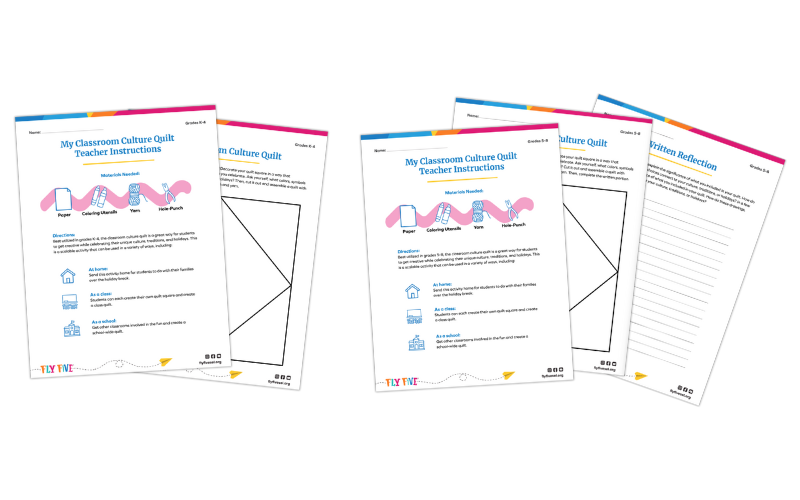
4. Practice Daily Gratitude Journaling
Encourage teachers and students to take a few minutes each day to reflect in a Mindfulness Gratitude Journal designed for students in K-2, 3-5, 6-8, and Teachers. Simple prompts like “One thing I appreciate about my school is …” or “Someone who helped me today was …” promote self-awareness and empathy. Over time, this practice can enhance well-being, improve focus, and deepen relationships, benefits supported by mindfulness.
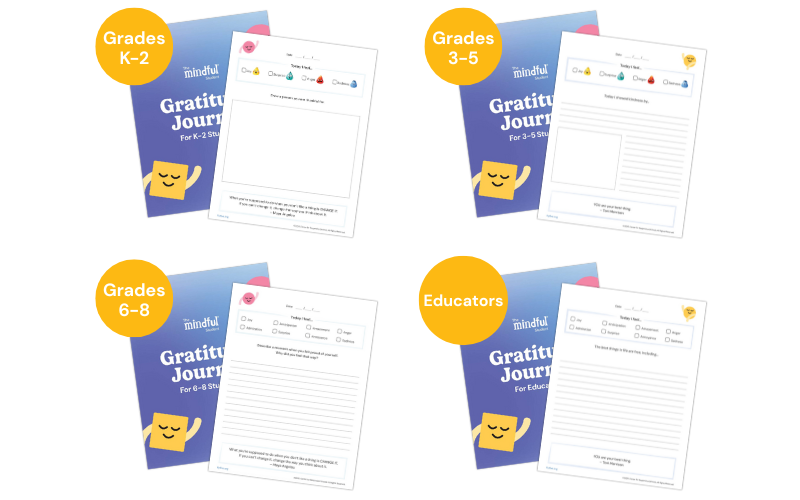
5. Notice and Name the Positives
Throughout the day, take time to observe and acknowledge what is going well. Use positive teacher language to highlight kind actions, effort, and progress. Comments like “I noticed how you included everyone at your table today” or “You showed a lot of care when helping your classmate” help reinforce a culture of respect and appreciation. When adults model gratitude through language, students mirror it in their own interactions.
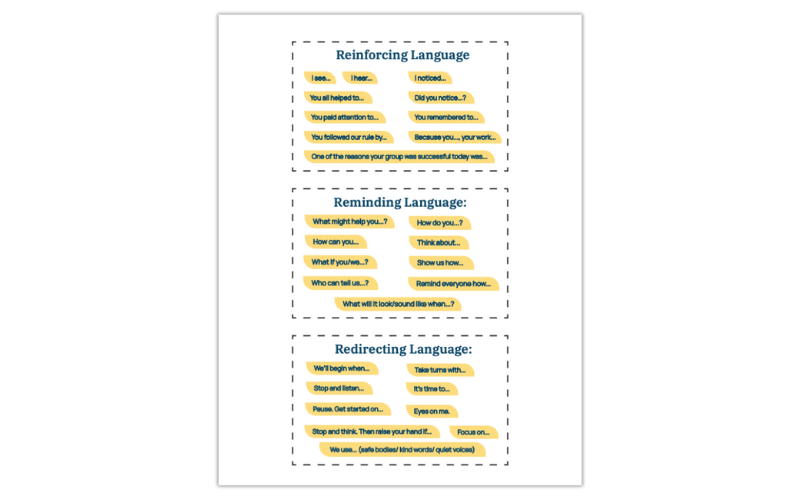
The Power of a Grateful Learning Community
Acts of gratitude, whether big or small, have the power to transform school culture. Through words, art, and reflection, taking time to notice and communicate appreciation reminds us that community grows not only through what we teach but through the care we show for each other.
